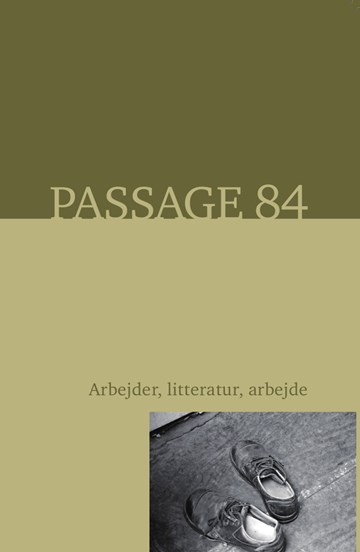Arbejdets æstetik og politik i Stig Sjödins lyrik
DOI:
https://doi.org/10.7146/pas.v35i84.124936Nøgleord:
sjödin, literature, work, litteratur, arbejderlitteratur, working-class, labor-movement, arbejderklasse, poetry, working-class poetry, poesiResumé
This article analyses one of the most prominent motifs in Swedish working-class writer Stig Sjödin’s (1917-1993) poetry, namely that of work. The main argument is that Sjödin’s attitudes toward work were conditioned both by his Marxist world-view and by the different audiences for which he was writing. The poetry that he published in the labor-movement press aimed at creating class consciousness among workers and presented work both as something marked by oppression and injustice and as a source of pride. In his poetry collections, he presented industrial labor to an audience of non-workers with the aim of making them aware of the plight of the working class. Here, work was presented in a more univocally negative way than in the poetry printed in the labor-movement press.
Downloads
Publiceret
Citation/Eksport
Nummer
Sektion
Licens
Forfattere, der publicerer deres værker via dette tidsskrift, accepterer følgende vilkår:
- Forfattere bevarer deres ophavsret og giver tidsskriftet ret til første publicering, samtidigt med at værket efter publiceringen er omfattet af en Creative Commons Attribution-licens, der giver andre ret til at dele værket med en anerkendelse af værkets forfatter og første publicering i nærværende tidsskrift.
- Forfattere kan indgå flere separate kontraktlige aftaler om ikke-eksklusiv distribution af tidsskriftets publicerede version af værket (f.eks. sende det til et institutionslager eller udgive det i en bog), med en anerkendelse af værkets første publicering i nærværende tidsskrift.
- Forfattere har ret til og opfordres til at publicere deres værker online (f.eks. i institutionslagre eller på deres websted) forud for og under manuskriptprocessen, da dette kan føre til produktive udvekslinger, samt tidligere og større citater fra publicerede værker (se The Effect of Open Access).





